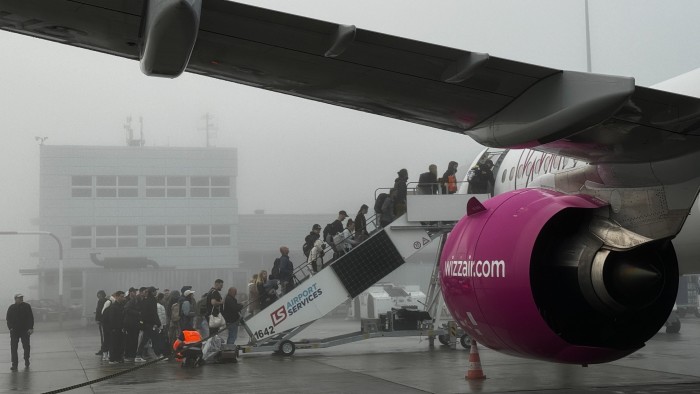Airlines will have to deal with more disruption and ground more planes because the maintenance needs of todays’ aircraft are higher than previous generations, the head of the world’s largest aircraft leasing company has warned.
“What we are seeing is that at the moment, when [planes] are in service they are not as durable as the predecessor aircraft,” said Aengus Kelly, chief executive of AerCap.
Talking to the Financial Times, Kelly said the latest aircraft models were “likely for many, many years to come, to spend more time in their maintenance hangar than their predecessors did”.
The problems were caused by the industry’s overall drive to improve the technology on this generation of aircraft and engines, including greater fuel-efficiency.
“We wouldn’t have as many of these issues today if the technology that was installed on these assets had maybe not been quite as ambitious but had been a bit more durable — then you wouldn’t have the shortages of parts and labour that are leading to these supply chain bottlenecks,” he said.
Airlines, he added, would have to ensure they had spare planes on standby “because you expect one of your fleet to be unserviceable”.
The warning from Kelly, whose company is also the world’s biggest engine leasing group, will stoke concerns of a possible repeat of last year’s travel disruptions, when airlines such as British Airways and Wizz Air were forced to cancel hundreds of flights for unscheduled repairs over issues with engines and securing spare parts.
Kelly said he believed the durability issue was a much “bigger challenge” for the industry in the longer term than delays in deliveries by Airbus and Boeing, which have led to tensions between the two main manufacturers and their airline customers.
The two plane makers and engine makers would eventually get there on deliveries, he said, but the challenge was: “How are these assets performing when they are in service.”
Durability issues with engines from Rolls-Royce and RTX’s Pratt & Whitney have been among the most high-profile reasons for airlines to ground aircraft in the past 18 months. Rolls-Royce is spending £1bn on improving the durability of its engines over the coming years.
Kelly, however, declined to single out any particular manufacturer or engine company for blame.
The increased maintenance needs were adding to the supply shortages in aircraft manufacturing.
If an aircraft that was built and delivered in 2020 did not need any maintenance until 2028, “that is great,” said Kelly. “If the same aircraft needs maintenance in 2022 or 2024, [then] it is consuming parts that otherwise would have gone to new production aircraft.”
Given the ongoing issues, Kelly cautioned Airbus and Boeing against launching a new generation of single-aisle aircraft anytime soon. His message to the manufacturers was: “None of the ones you’ve delivered work properly so fix those first and then come back to me.”
Airbus, Boeing and Rolls-Royce have been contacted for comment.
